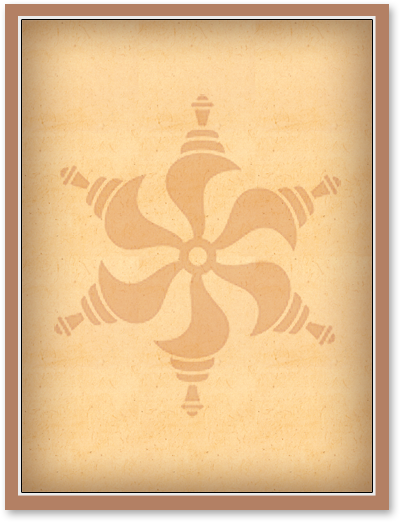

Those were the times when illiteracy was almost universal. Those who could read and write in the local language and in Sanskrit were considered to be great scholars. Shukanand Muni formerly known as Jagannath was one such versatile scholar. Born in a Brahmin family he studied well in childhood and grew up as a great scholar of Gujarati and Sanskrit at Dabhan, a town near Nadiad. Dabhan is famous for the non-violent Mahavishnu Yaga (a sacrifice) which was performed by Shree Hari on an unprecedented scale.
Once a group of Swaminarayan saints visited Dabhan and Jagannath Bhatt came in touch with Muktanand Swami. He was initiated as a saint to be accepted in the circle of saints. He was then named as Shukanand Muni. Then headed by Muktanand Swami all the saints went to Shree Hari at Gadhada.
Shree Hari welcomed them all and asked Muktanand Swami: “Why the new entrant is named Shukanand Muni?” Muktanand Swami replied: “He is the incarnation of Suhkaji, the composer and expounder of Bhagavad-Gita. So I have named him as Shukanand Muni. He is a great scholar of Sanskrit too.”
Shree Hari then assigned him the work of a writer. Shukanand Muni served Him so sincerely that Shree Hari praising him at a religious assembly said: “This Shukanand Muni is a great saint. From the day since he has come to live with Me his enthusiasm for religious matters is always increasing and it never diminishes. He is comparable to Muktanand Swami.” (V.Kariyani–3).
On behalf of Shree Hari he wrote all circular letters and personal letters to the devotees at different places. He also wrote and copied religious books for the Holy Fellowship. He would also correct manuscripts in Sanskrit for Shree Hari and the saints.
Once at a religious meeting of the saints Shree Hari remarked: “Three things from Dabhan are my most favorite.First, the mango saplings brought here from there and planted at Lakshmi Baug at Gadhada. The second, is the bullock brought from there and the third, is Shukanand Muni.” That remark carried the meaning: Shukanand Muni was as sweet as mango in the use of his words. He, like a bullock, carried on the responsibility of the task of writing and worked hard.
On one night when Shukanand Muni was taking dictation from Shree Hari and the lamp went off as the oil in the lamp was exhausted. But Shree Hari produced light from his toe. This act not only continued the writing work but also convinced Shukanand Swami about Shree Hari’s Godhead. The light grew brighter and brighter till the eyes of Shukanand Muni couldnot bear it. Shree Hari then softened the light sufficiently. The work of writing letters went on till the dawn of the sun.
Shukanand Muni was once down with high fever and couldn’t leave his bed. During this time Shree Hari summoned him to write some letters but he expressed his inability. Shree Hari came to him and asked two persons to help him stand on his feet. Once he was on his feet, Shree Hari glanced at him and his fever abated on the spot. Since then Shukanand Muni never got a fever.
When Shree Hari left his mortal coil, Shukanand Muni prayed to Him: “Let me suffer from the fever of separation from you.” Then he suffered from fever for more than twelve years and finally closed his eyes forever on the Amavasya of the month of Margashirsha in Samvat 1925, while having Darshan of Shree Hari.
His works include : Commentary ‘Hetu’ on Satsangi Jivan, Jnana-Dip, Vishva Mangal Stotra, Gujarati translation of the 10th canto of Bhagavad-Gita, Gujarati translation of Harigita from Satsangi Jivan, Gujarati translation of Bhakt Adhyaya of the 2nd Chapter of Satsangi Jivan, Gujarati translation of Dharmamrita, Buddhi Pradip with Gujarati translation and Prarthana Mala with Gujarati translation.
Shukanand Muni’s life still remains as an exemplary to devotees of Swaminarayan way of life.